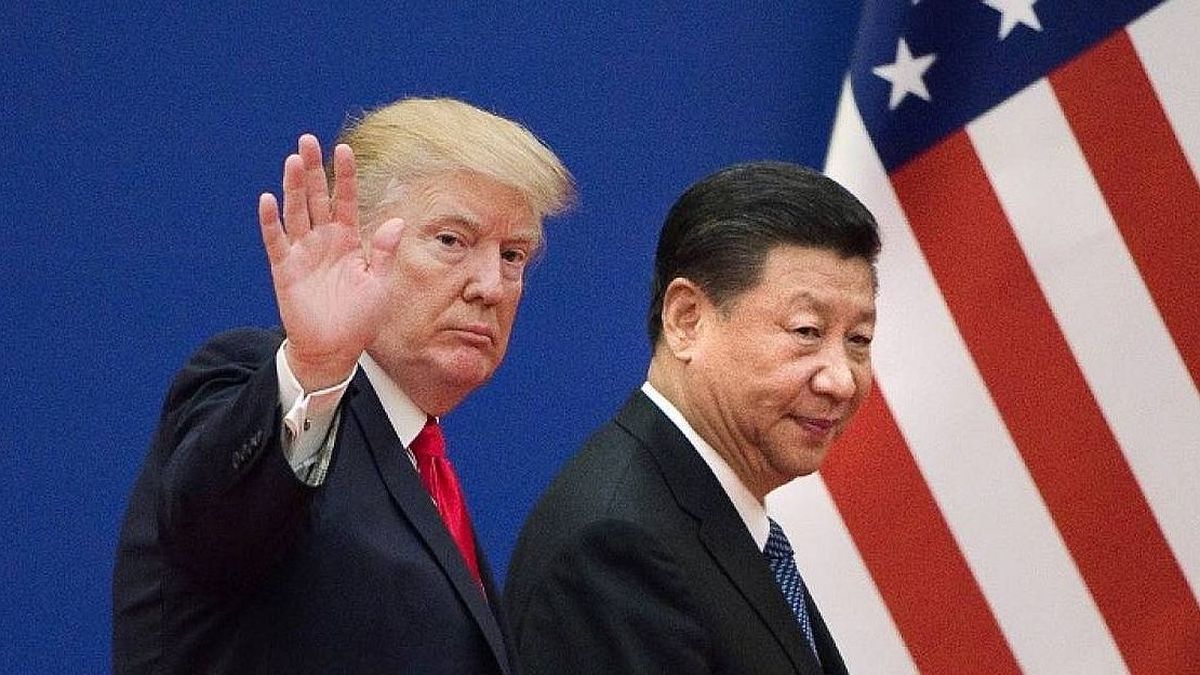Inflation in Germany continues to lose pace. The rate fell in February to its lowest value since June 2021. Energy is cheaper than a year earlier.
Consumers in Germany can gradually breathe a sigh of relief. Inflation continues to decline. According to preliminary data from the Federal Statistical Office on Thursday, consumer prices in February were 2.5 percent higher than in the same month last year. It was the lowest value since June 2021 at 2.4 percent.
An annual inflation rate of 2.9 percent was recorded in January and 3.7 percent in December. Dekabank chief economist Ulrich Kater spoke of an “impressive decline” in inflation in recent months. However, there will be “one or two setbacks in the coming months.”
Economists generally expect a further decline in inflation over the course of the year, although this could slow down. Stress factors include the increase in the CO₂ price from 30 euros per ton of carbon dioxide (CO₂) to 45 euros and the return to the regular VAT rate on food in restaurants at the beginning of the year. “The last mile in the fight against inflation is the most difficult,” expects Commerzbank chief economist Jörg Krämer.
Energy cheaper – services more expensive
Higher inflation rates reduce the purchasing power of consumers. People can afford one euro less. Many people turned their back on consumption last year.
According to preliminary figures, household energy and fuel prices fell by 2.4 percent in a year in February, following a decline of 2.8 percent in January. Food, on the other hand, cost 0.9 percent more than in February 2023. However, the increase weakened. An increase of 3.8 percent was recorded in January. Services are expected to increase in price by 3.4 percent. “While the favorable development on the gas and electricity markets is providing a tailwind, it remains to be seen how persistent the price increase in services will be,” said KfW chief economist Fritzi Köhler-Geib.
According to preliminary data, consumer prices rose by a total of 0.4 percent compared to the previous month of January.
The federal government expects wage increases
The federal government expects consumer prices to rise by an average of 2.8 percent this year after 5.9 percent in 2023. Federal Minister of Economics Robert Habeck assumes that wage increases will be above the inflation rate. The expectation is that employees will also spend the money and thus stimulate private consumption. Private consumption is an important pillar of the German economy.
Last year, the 6.0 percent increase in salaries was almost completely offset by the 5.9 percent increase in consumer prices. According to the statisticians, there was an increase in real wages of 0.1 percent, the first increase since 2019. However, the inflation compensation premiums paid in many companies were also taken into account in the nominal wages.
These one-off payments are exempt from taxes and contributions by the state and have caused incomes in the lower salary groups to rise disproportionately. In a previous evaluation, the union WSI collective bargaining archive found a further decline in real wages of 0.4 percent for collective bargaining employees for 2023. The inflation compensation premiums were not fully taken into account in this calculation.
Bundesbank President warns against cutting interest rates too early
Despite the decline in inflation, Bundesbank President Joachim Nagel recently warned: “Even if the temptation may be great, it is too early to cut interest rates.” Inflation is on the decline both in Germany and in the euro area. But the goal has not yet been achieved. The European Central Bank (ECB) is aiming for price stability in the euro area in the medium term with an inflation rate of two percent. Since the summer of 2022, the euro currency watchdogs have countered the temporarily significant rise in inflation with ten interest rate increases in a row.
Higher interest rates make loans more expensive, which can slow down demand and counteract high inflation rates. However, because rising loan interest rates also make investments more expensive and this can slow down the currently weakening economy, calls for interest rate cuts have recently become louder.
Source: Stern




